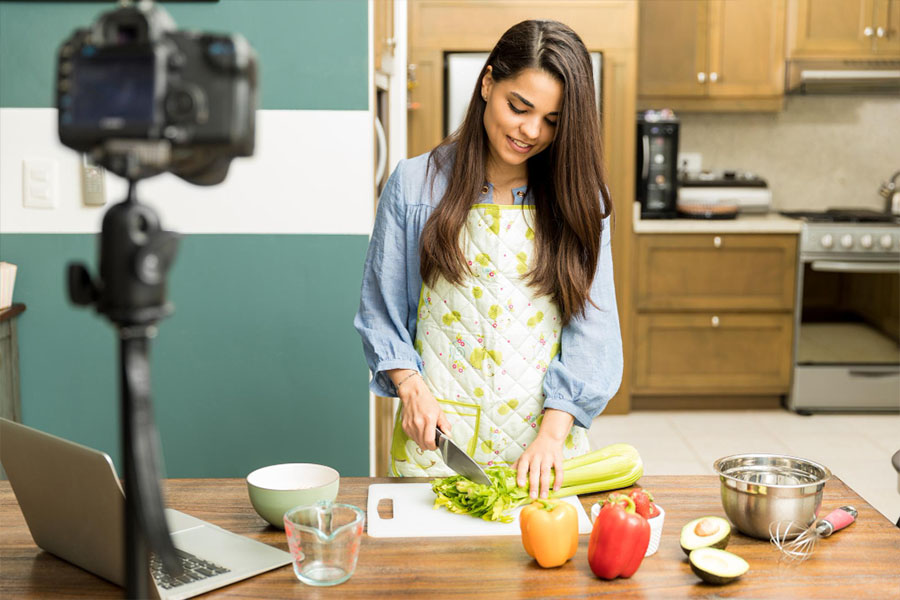
- Admin
- June 14, 2022
- Tech
10 Steps to Become a Successful Online Cooking Coach
In today’s digital age, the culinary world has shifted significantly online, making it easier than ever to share your cooking skills and build a successful career as an online cooking coach. Whether you’re a professional chef or a passionate home cook, these steps will guide you to become an effective and engaging online cooking coach.
1. Define Your Niche
The first step is to identify your area of expertise. Whether it’s vegan cooking, quick family meals, baking, or regional cuisines, selecting a niche helps you target the right audience and stand out in a crowded market.
Pro Tip: Research trends and demand in the cooking industry to find a niche that aligns with your passion and has market potential.
2. Create a Personal Brand
Your brand is how your audience will identify you. This includes your teaching style, the type of recipes you share, and even your visual presence online.
- Choose a catchy name or tagline.
- Design a logo or color scheme for your social media and website.
- Showcase your personality through your content.
Example: "Quick & Delicious with [Your Name]" appeals to busy professionals.
3. Build an Online Presence
To connect with your audience, establish a strong presence on platforms like:
- Social Media: Instagram, Facebook, TikTok, or YouTube for short videos and live cooking sessions.
- Website: A professional site where you can showcase your services, blogs, and recipes.
- Email List: Build an email list to send newsletters and cooking tips directly to your followers.
4. Invest in Quality Equipment
High-quality visuals and sound are essential for online coaching. Invest in the following:
- A good camera (or a smartphone with excellent video quality).
- A microphone for clear audio.
- Proper lighting to make your dishes look appetizing.
- Editing software to create polished videos.
5. Develop Engaging Content
Create content that resonates with your target audience. Ideas include:
- Tutorial Videos: Step-by-step cooking guides.
- Live Classes: Real-time interaction with students.
- Tips & Tricks: Short videos on kitchen hacks or ingredient substitutions.
- Behind-the-Scenes: Share glimpses of your cooking journey to build a personal connection.
6. Offer Structured Courses
While free content can attract viewers, structured paid courses can generate income. Platforms like Udemy, Teachable, and Skillshare are excellent for hosting your classes. Offer:
- Beginner to advanced-level courses.
- Niche-specific lessons (e.g., "Mastering Gluten-Free Desserts").
- Certifications to add value to your coaching.
7. Engage with Your Audience
Consistency and interaction are key to building a loyal audience. Reply to comments, host Q&A sessions, and create content based on follower suggestions. This engagement makes your audience feel valued and connected to your brand.
8. Monetize Your Expertise
There are multiple ways to earn as an online cooking coach:
- Paid Classes: Charge for live or recorded sessions.
- E-books: Compile your recipes into a downloadable cookbook.
- Brand Collaborations: Partner with kitchenware or ingredient brands.
- Affiliate Marketing: Recommend products and earn commissions.
9. Continuously Learn and Improve
The culinary world evolves, and so should you. Stay updated with food trends, learn new cooking techniques, and improve your teaching style. Consider attending workshops or taking advanced courses to enhance your skills.
10. Gather Testimonials and Feedback
Positive reviews can boost your credibility. Ask your students to share their experiences and showcase these testimonials on your website and social media. Feedback also helps you refine your coaching methods and address your audience’s needs.
Bonus Tips for Success:
- Be Authentic: Let your passion for cooking shine through in your content.
- Plan Ahead: Create a content calendar to stay consistent.
- Analyze Metrics: Track engagement and adapt strategies based on what works.
Conclusion
Becoming a successful online cooking coach takes time, effort, and creativity. By following these steps and staying dedicated, you can turn your culinary passion into a thriving online career. Remember, the key is to keep your audience engaged and inspired to learn from you. So, put on your apron, fire up your camera, and start cooking your way to success!


